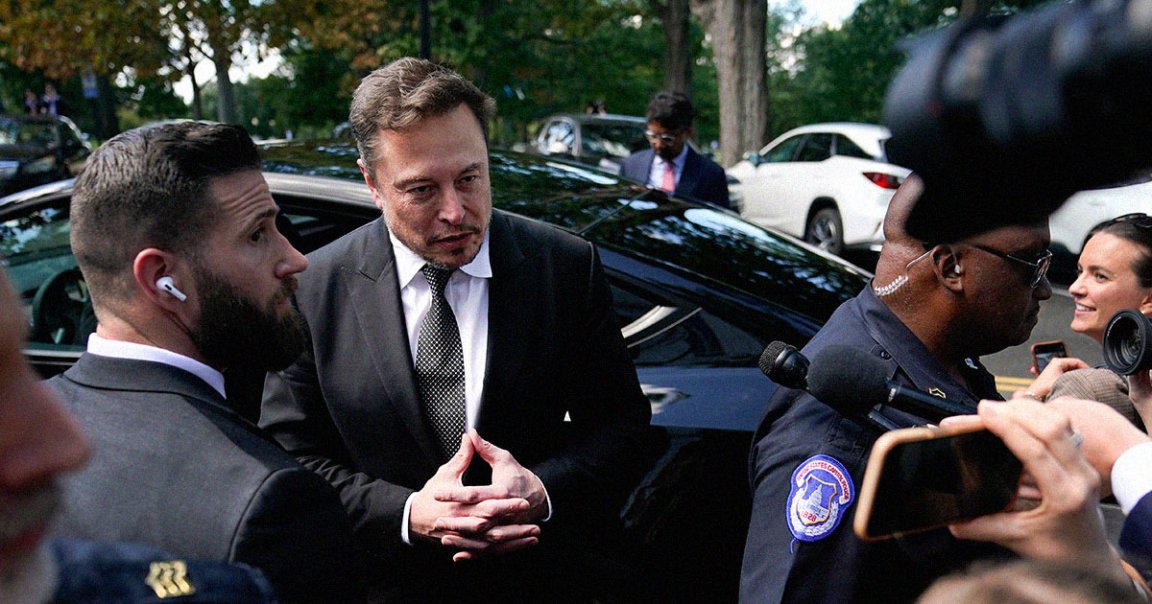
Debt Hole
X-formerly-Twitter owner Elon Musk had to dig deep in his own pockets to fund his chaotic acquisition of the social media platform last year — but the purchase also relied on traditional financial institutions.
The mercurial CEO had to borrow a whopping $13 billion from seven banks to scrounge together the asking price of $44 billion almost exactly a year ago.
Those banks still haven’t recovered from the ensuing chaos, the Wall Street Journal reports, with Musk’s questionable leadership causing the value of the platform to plummet over the last 12 months.
The numbers are staggering: the seven banks, which include Morgan Stanley, Bank of America, and Barclays, are bracing themselves to take a hit of at least 15 percent, per the report, amounting to a loss of around $2 billion — a devastating bet on the world’s richest man that has seemingly backfired spectacularly.
Hung Deal
The banks were reportedly hoping to sell off the debt by Labor Day and are now getting ready to unload portions of it, according to the WSJ‘s sources. Worse yet, if Musk’s social media platform gets a low credit rating, banks could have an even harder time getting rid of it.
In other words, the longer they hold onto this debt, the worse the situation gets, and the more scrutiny they could get from regulators.
According to the WSJ, X’s debt is now one of the largest and longest-held “hung” deals, or agreements that typically lead to banks losing out after financing acquisitions that don’t work out.
Meanwhile, Musk’s hard-to-reconcile actions — burying Twitter’s immense name recognition in favor of “X,” letting misinformation run rampant, and mass layoffs, to name a few — have sent advertisers fleeing, leaving massive holes in the company’s balance sheets.
Earlier this week, marketing consultancy Ebiquity found that the vast majority of the site’s biggest spenders have stopped advertising there following Musk’s takeover.
Despite the disastrous outlook, Musk and CEO Linda Yaccarino remain adamant that X will become profitable as soon as next year.
One thing’s for sure: the banks are probably hoping they’re right.
More on the situation: It Looks Like Twitter Is in Even Deeper Trouble Than We Thought